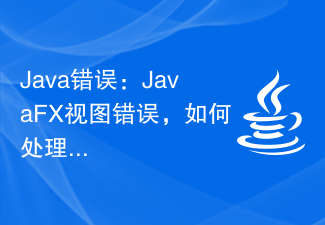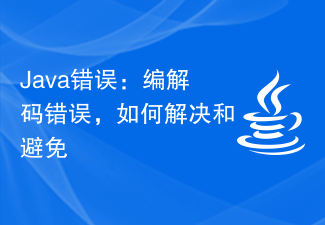这次给大家带来使用Angular2时避免Dom误区,使用Angular2时避免Dom误区的注意事项有哪些,下面就是实战案例,一起来看一下。
前言
Angular2的设计目标本来就是要让浏览器和DOM独立。DOM是复杂的,因此使组件与它分离,会让我们的应用程序,更容易测试和重构。为了支持跨平台,Angular还通过抽象封装了不同平台的差异。
内容
1.为什么不能直接操作DOM?
Angular2采用AOT静态编译模式,这种形式下需要我们的模板类型必须是稳定和安全的,直接使用javascript和jquery语言是不稳定,因为他们的编译不会提前发现错误,所以angular2才会选择javascript的超集typescript语言(这种语言编译期间就能发现错误)。
2.三种错误操作DOM的方式:
@Component({ ... })
export class HeroComponent {
constructor(private _elementRef: ElementRef) {}
doBadThings() {
$('id').click(); //jquery
this._elementRef.nativeElement.xyz = ''; //原生的ElementRef
document.getElementById('id'); //javascript
}
}
3.Angular2如何DOM操作的机制?
为了能够支持跨平台,Angular 通过抽象层封装了不同平台的差异。比如定义了抽象类 Renderer、Renderer2 、抽象类 RootRenderer 等。此外还定义了以下引用类型:ElementRef、TemplateRef、ViewRef 、ComponentRef 和 ViewContainerRef 等。
4.正确操作DOM的方式(ElementRef和Renderer2):
product.component.html
<p>商品信息</p>
<ul>
<li *ngFor="let product of dataSource| async as list">
{{product.title}}
</li>
</ul>
<p #dia>
</p>
product.component.ts
import { Component, OnInit,Renderer2, ViewChild,ElementRef,AfterViewInit} from '@angular/core';
@Component({
selector: 'app-product',
templateUrl: './product.component.html',
styleUrls: ['./product.component.css']
})
export class ProductComponent implements OnInit,AfterViewInit {
@ViewChild('dia') dia:ElementRef ;定义子试图
ngOnInit() {
/**1.
*创建一个文本
*/
this.dia.nativeElement.innerHTML="这只是一个测试的文档";
/**2.
*添加click事件
*/
let ul=this.element.nativeElement.querySelector('ul');
this.render2.listen(ul,"click",()=>{
this.render2.setStyle(ul,"background","blue");
ngAfterViewInit(){
/**3.
*修改背景颜色
*/
let li=this.element.nativeElement.querySelector('ul');
this.render2.setStyle(li,"background","red");
}
}
总结
学习一种语言其实我们首先应该去遵循他的规范,接受他和之前语言的不同之处,然后再去深入理解和之前的方式不一样在哪里,为什么这么做,否则我们无法理解这种语言的妙处,希望对你有帮助!
相信看了本文案例你已经掌握了方法,更多精彩请关注php中文网其它相关文章!
推荐阅读:
以上是使用Angular2时避免Dom误区的详细内容。更多信息请关注PHP中文网其他相关文章!
 Java错误:JavaFX视图错误,如何处理和避免Jun 25, 2023 am 08:47 AM
Java错误:JavaFX视图错误,如何处理和避免Jun 25, 2023 am 08:47 AMJavaFX是Java平台的一个用户界面框架,类似于Swing,但却更加现代化和灵活。然而在使用时可能会遇到一些视图错误,本文将介绍如何处理和避免这些错误。一、JavaFX视图错误的类型在使用JavaFX时,可能会遇到以下几种视图错误:NullPointerException这是最常见的错误之一,通常在尝试访问未初始化或不存在的对象时发生。这可能
 Java错误:编解码错误,如何解决和避免Jun 24, 2023 pm 05:27 PM
Java错误:编解码错误,如何解决和避免Jun 24, 2023 pm 05:27 PMJava是一门非常流行的编程语言,许多项目都是由Java编写的。然而,当我们在开发过程中遇到“编解码错误”(EncodingandDecodingErrors)时,可能会感到困惑和疑惑。在本文中,我们将介绍Java编解码错误的原因、如何解决和避免这些错误。什么是编解码错误?在Java开发过程中,我们经常需要处理文本和文件。然而,不同的文本和文件可能使
 Java错误:JDBC错误,如何解决和避免Jun 24, 2023 pm 02:40 PM
Java错误:JDBC错误,如何解决和避免Jun 24, 2023 pm 02:40 PM随着Java的广泛应用,Java程序在连接数据库时经常会出现JDBC错误。JDBC(JavaDatabaseConnectivity)是Java中用于连接数据库的编程接口,因此,JDBC错误是在Java程序与数据库交互时遇到的一种错误。下面将介绍一些最常见的JDBC错误及如何解决和避免它们。ClassNotFoundException这是最常见的JDBC
 关于Python变量命名规则的常见误解及解决方案Jan 20, 2024 am 09:10 AM
关于Python变量命名规则的常见误解及解决方案Jan 20, 2024 am 09:10 AMPython变量命名规则的常见误区及解决方法在Python编程中,正确的变量命名是非常重要的。一个良好的命名习惯可以使代码更易读、易维护,并且可以避免一些潜在的错误。然而,新手常常会犯一些常见的变量命名误区。本文将介绍一些常见的误区,并给出解决方法和具体的代码示例。误区一:使用保留关键字作为变量名Python有一些保留关键字,这些关键字是Python语法中的
 PHP语言开发中避免陷入无限循环的方法Jun 10, 2023 pm 02:36 PM
PHP语言开发中避免陷入无限循环的方法Jun 10, 2023 pm 02:36 PM在PHP语言开发中,经常会遇到无限循环的情况,它会无限制地执行某些代码,导致程序崩溃甚至服务器崩溃。本文将介绍一些避免陷入无限循环的方法,帮助开发人员更好地解决这一问题。1.避免在循环中进行无限递归调用当在循环中调用一个函数或方法时,如果函数或方法中又包含了循环语句,就会形成无限递归调用,导致程序崩溃。为避免这种情况的发生,可以在递归调用函数或方法时,添加一
 如何避免在PHP5.6升级至PHP7.4过程中出现的兼容性陷阱?Sep 05, 2023 am 08:25 AM
如何避免在PHP5.6升级至PHP7.4过程中出现的兼容性陷阱?Sep 05, 2023 am 08:25 AM如何避免在PHP5.6升级至PHP7.4过程中出现的兼容性陷阱?随着技术的不断进步,PHP作为一种常用的编程语言,在不同的版本之间往往存在一些兼容性问题。当我们决定从较旧的版本升级到较新的版本时,很容易遇到一些意想不到的问题,特别是在PHP5.6升级至PHP7.4的过程中。为了帮助大家避免兼容性陷阱,本文将介绍一些常见的陷阱及其解决方法。语法错误PH
 Golang开发注意事项:如何避免内存泄露问题Nov 23, 2023 am 09:38 AM
Golang开发注意事项:如何避免内存泄露问题Nov 23, 2023 am 09:38 AMGolang是一种快速、高效的开发语言,以其强大的并发能力和内置的垃圾回收机制而受到广泛的欢迎。然而,即使在使用Golang进行开发时,仍然有可能遇到内存泄露的问题。本文将介绍一些常见的Golang开发注意事项,以帮助开发者避免内存泄露问题。避免循环引用循环引用是Golang中常见的内存泄露问题之一。当两个对象相互引用时,如果没有适时地释放这些对象的引用,就
 PHP与MySQL索引的失效情况及如何避免和解决Oct 15, 2023 am 11:52 AM
PHP与MySQL索引的失效情况及如何避免和解决Oct 15, 2023 am 11:52 AMPHP与MySQL索引的失效情况及如何避免和解决引言:在开发Web应用程序时,PHP和MySQL往往是常用的编程语言和数据库。而在处理大量数据时,索引是提高查询性能的重要因素之一。然而,索引的失效情况可能会导致查询变慢,从而影响应用程序的性能。本文旨在介绍PHP与MySQL索引的失效情况,并提供一些实用的解决办法和避免措施。一、什么是索引失效索引失效指的是在


热AI工具

Undresser.AI Undress
人工智能驱动的应用程序,用于创建逼真的裸体照片

AI Clothes Remover
用于从照片中去除衣服的在线人工智能工具。

Undress AI Tool
免费脱衣服图片

Clothoff.io
AI脱衣机

AI Hentai Generator
免费生成ai无尽的。

热门文章

热工具

安全考试浏览器
Safe Exam Browser是一个安全的浏览器环境,用于安全地进行在线考试。该软件将任何计算机变成一个安全的工作站。它控制对任何实用工具的访问,并防止学生使用未经授权的资源。

SublimeText3 Linux新版
SublimeText3 Linux最新版

SublimeText3汉化版
中文版,非常好用

记事本++7.3.1
好用且免费的代码编辑器

SublimeText3 Mac版
神级代码编辑软件(SublimeText3)





